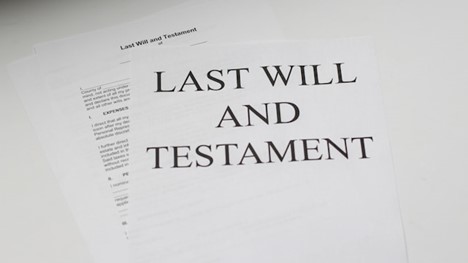Trusts and wills serve the purpose of ensuring your assets are distributed according to your wishes after your death, but they do so in different ways and under different circumstances. An estate lawyer can help you understanding the differences between these documents, along with their respective benefits and drawbacks, that is essential for making informed decisions.
Wills
A will is a legal document that outlines how your assets will be distributed upon your death. It can also appoint guardians for minor children and specify other final wishes, such as funeral arrangements.
The Benefits of Wills
Simplicity: Wills are relatively straightforward to create and understand. They allow you to clearly state your wishes regarding the distribution of your assets and the care of your dependents.
Flexibility: Wills can be amended or revoked at any time before death, allowing you to make changes as your circumstances or preferences evolve.
Court Supervision: Wills are subject to probate, which is the legal process of administering the estate. This court supervision ensures that the terms of the will are carried out as intended.
Drawbacks
Probate Process: While probate provides legal oversight, it can be lengthy and costly. The process is public, which means that the details of your estate become part of the public record.
Limited Scope: Wills do not cover all types of assets. For instance, jointly-owned property or accounts with designated beneficiaries pass directly to the other owner or beneficiary and are not governed by the will.
Challenges and Contests: Wills can be contested by disgruntled heirs or other parties, potentially leading to legal battles and delays in the distribution of assets.
Understanding Trusts
A trust is a legal arrangement where one party (the trustee) holds and manages assets for the benefit of another party (the beneficiary). Trusts can be created during your lifetime (living trusts) or upon your death (testamentary trusts).
Benefits of Trusts
Avoidance of Probate: Assets held in a trust bypass the probate process, allowing for faster and more private distribution to beneficiaries.
Control and Flexibility: Trusts can include detailed instructions on how and when assets are to be distributed, providing greater control over the timing and conditions of inheritance.
Tax Benefits: Certain types of trusts can provide tax advantages, potentially reducing estate taxes and preserving more wealth for your beneficiaries.
Protection: Trusts can offer protection from creditors and legal claims, ensuring that assets are preserved for the intended beneficiaries.
Drawbacks
Complexity: Trusts can be more complex and expensive to set up and manage compared to wills. They require careful drafting and ongoing administration.
Funding the Trust: Assets must be properly titled and transferred into the trust, which can be time-consuming and may require legal assistance.
Maintenance: Trusts require ongoing management, which might involve additional costs and the need for a reliable trustee.
When to Use a Will
Wills are generally suitable for individuals with straightforward estates and those who want to ensure their wishes are legally recognized. If your primary goal is to name guardians for minor children, distribute personal items, and specify funeral arrangements, a will may be sufficient.
When to Use a Trust
Trusts are advantageous for individuals with larger or more complex estates, those seeking to avoid probate, and those desiring greater control over how and when their assets are distributed. Trusts are also beneficial for those wanting to provide for beneficiaries who may need assistance managing their inheritance, such as minors or individuals with special needs.
Combining The Documents
Many estate plans incorporate both trusts and wills to leverage the benefits of each. A common approach is to use a will to address personal matters and a trust to manage and distribute assets. This combination can provide a comprehensive and flexible estate plan tailored to your specific needs and goals.
Conclusion
Deciding between a trust and a will—or using both—depends on your individual circumstances, goals, and the complexity of your estate. Consulting with an estate attorney is crucial for understanding the best options for your situation.
Legal counsel can provide personalized advice, ensuring that your estate plan is structured to meet your needs and provide for your loved ones according to your wishes. By carefully considering the benefits and drawbacks of trusts and wills, you can make informed decisions that will protect your assets and secure your legacy for future generations.


